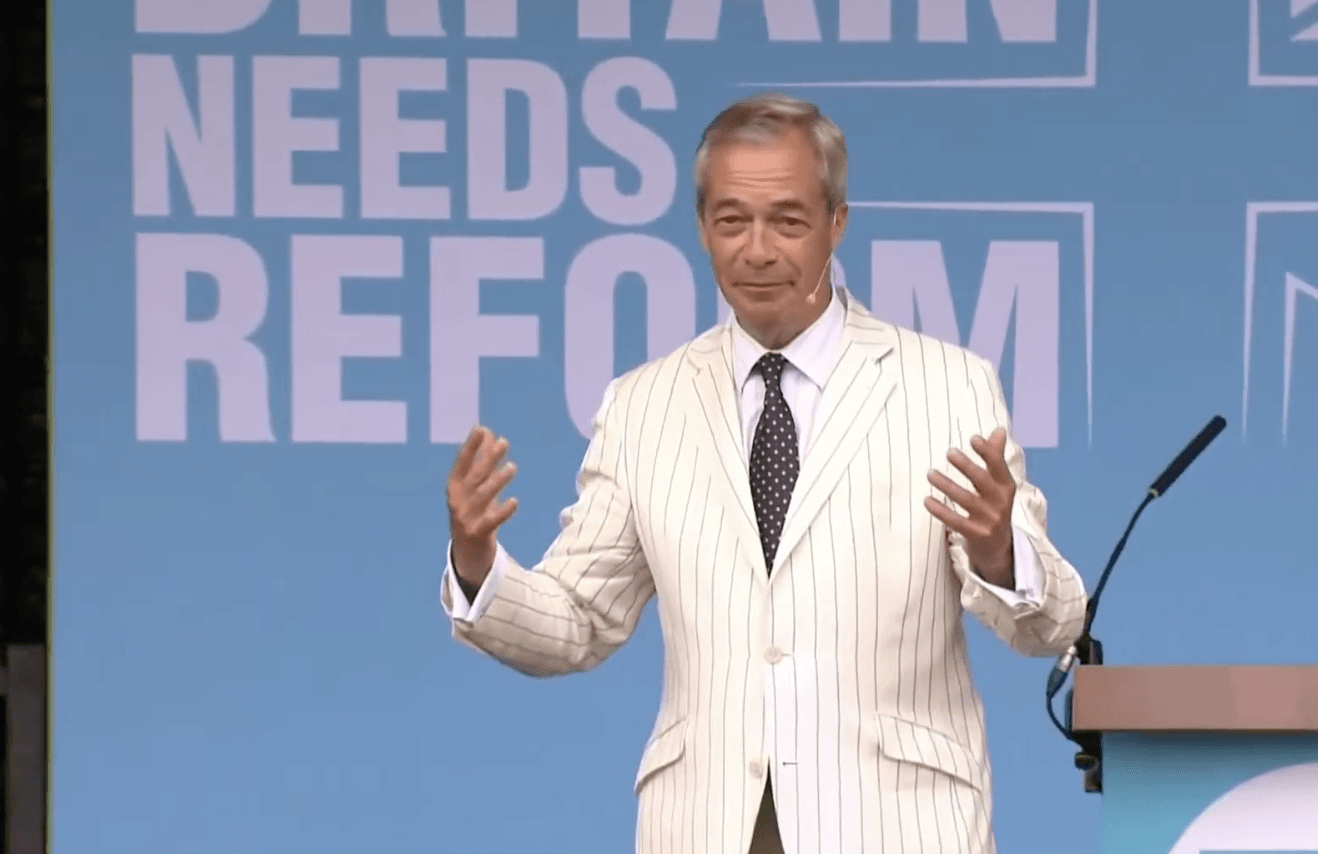THE temptation to put people in a box is intense. This person is right-wing, therefore I reject everything they may say or do about anything. This other person is left-wing, and so all of their views on everything are good and I readily support them. Which is a bit stupid of me.
Because you can agree with an individual or a group on many things but reject their thinking on a few topics. And the other way round: you can detest much of what somebody has to say, but it’s it’s just possible they get some other things spot on.
Nigel Farage looks like he escaped from the Beano, circa 1955, or from one of those saucy seaside postcards. He insists that leaving the EU was a good idea, despite the sad truth staring him – and the rest of us – in the face.
Just Putin apologist Nigel Farage telling @BBCPanorama “We (The West) provoked the war in Ukraine”
— Jolyon Rubinstein (@JolyonRubs) June 22, 2024
pic.twitter.com/uhrIKspIDM
But recently Farage said something that was worth saying: “It was obvious to me that the ever-eastward expansion of Nato and the European Union was giving this man [Putin] a reason... to say: ‘They’re coming for us again’ and to go to war.”
As Farage sees things, Putin is an accomplished politician. And he’s right; you may not like Putin (who does?) but faced by a lawless shower of oligarchs busy looting the post-USSR economy, Putin found ways to put the fear of God into most of them, and the Russian people are grateful he did so. Russia needed order and Putin imposed it.
As for Ukraine, the orthodox Western judgment is that Putin is Hitler in disguise, intent on gobbling up adjoining states until he has built an empire. His invasion of Ukraine is only the start of it.
Farage sees things differently. Not, he says, that he believes in or likes Putin, but that the West’s thinking is misleading. Putin invaded Ukraine, less because he is intent on building an empire and more because he fears having a Western-leaning neighbour.
Let’s look at the US’s relationship with its southern neighbours.
In 1959, Fidel Castro deposed the Cuban dictator Batista and led Cuba until 2011. During those years the US tried everything from the botched Bay of Pigs invasion to exploding cigars to remove Castro. They failed but it wasn’t for want of trying.
In 1964 the US helped topple the social democratic government in Brazil and replaced it with a dictatorship.
In 1971, the US government supported a coup that toppled and executed the left-leaning President Juan José of Bolivia. The US-backed military dictator Hugo Banzer who replaced him used arrest, torture and death against his fellow-citizens.
In 1973 Chile, the democracy of Salvador Allende was toppled with CIA help and replaced by the dictatorship of Augusto Pinochet. Under Pinochet, over 3,000 Chileans were disappeared or killed.
I could go on but you see the pattern. Any South American country deemed a threat to the US’s interests was – what should we say? – rearranged. The US regards South America as its ‘back yard’, so any country there either served US interests or suffered violent change.
Today, Russia views Ukraine as a threatening neighbour. Amid talk of Ukraine joining the EU, maybe NATO as well, Russia saw Ukraine as a threat to its security and invaded.
So while the invasion of Ukraine was wrong, Farage is right to maintain that Russia was provoked into invasion, given the clear signs that the West was and is intent on cementing Ukraine into its anti-Russian front.
Shakespeare as usual caught it exactly. The words of the much-hated Shylock in The Merchant of Venice could come from the mouth of Putin: "The villainy you teach me, I will execute – and it shall go hard but I will better the instruction."
Best not dismiss Farage completely. Even a stopped clock tells the correct time twice a day.







